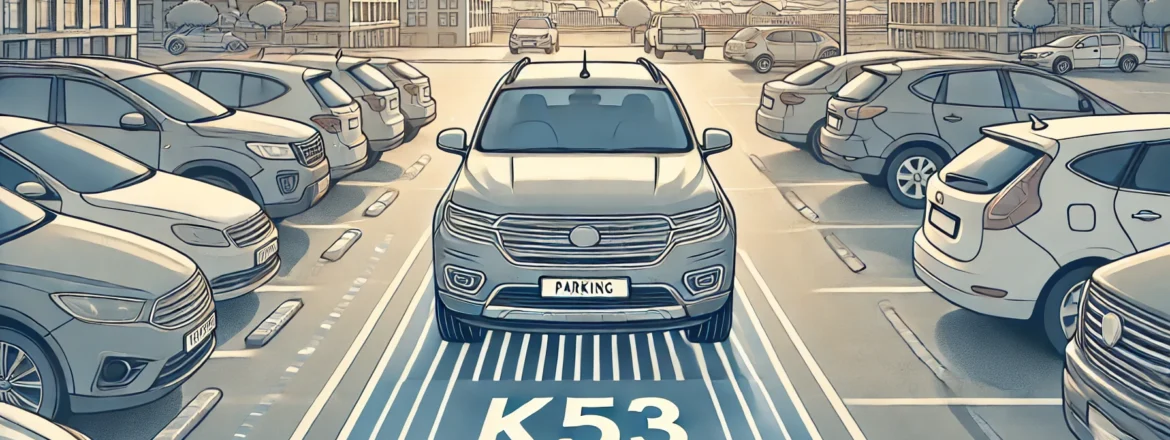Parking can be challenging, especially in bustling cities like Cape Town. Whether you’re a new driver or someone looking to improve your parking skills, this guide will help you park confidently and safely.
Table of Contents
- Why Parking is a Key Driving Skill
- Common Parking Scenarios in Cape Town
- Essential Tips for Parking in Cape Town
- K53 Parking Techniques: Parallel, Reverse, and Bay Parking
- Finding Parking in Busy Areas
- How to Practice Parking Like a Pro
- Parking Safety Tips
- FAQs About Parking in Cape Town
Why Parking is a Key Driving Skill
Parking is a fundamental part of driving. It tests your control over the car, your judgment of space, and your ability to remain calm under pressure. Mastering parking helps you:
- Avoid accidents or damage to your vehicle.
- Save time when visiting busy areas like Cape Town CBD or shopping centers.
- Meet the requirements of the K53 driving test, which includes parallel and reverse parking.
Common Parking Scenarios in Cape Town
Cape Town offers diverse parking challenges, including:
1. City Parking
In areas like Long Street or Greenmarket Square, parking spots are often limited, requiring advanced parallel parking skills.
2. Shopping Malls
Places like Canal Walk and V&A Waterfront have dedicated parking bays but can get crowded during peak times. Bay parking skills are essential.
3. Suburban Parking
Neighborhoods like Stellenbosch and Table View often have more space but may require reverse parking on narrow streets.
4. Beachfront Parking
Areas like Camps Bay or Blouberg Beach can get congested. Patience and quick decision-making help in these high-traffic zones.
Essential Tips for Parking in Cape Town
- Observe Signs and Rules: Look for “No Parking” or time-restricted zones to avoid fines.
- Use Your Mirrors: Keep an eye on your surroundings while parking.
- Go Slow: Parking requires precision, so drive at a crawl while maneuvering.
- Practice Spacing: Leave enough room between your car and others to avoid scratches.
K53 Parking Techniques: Parallel, Reverse, and Bay Parking
The K53 driving system is a South African standard for safe driving, and parking is a crucial component. Here’s how to handle the three main types of parking:
1. Parallel Parking
- Align your car next to the vehicle in front of the spot.
- Reverse slowly, turning the wheel to guide the car into the space.
- Straighten your wheels and adjust for proper alignment.
2. Reverse Parking
- Position your car so the rear faces the open bay.
- Reverse in slowly, using your mirrors to stay centered.
- Ensure your car is fully inside the bay without crossing the lines.
3. Bay Parking
- Approach the bay with the car straight and centered.
- Steer gently to position the car within the lines.
- Avoid oversteering to maintain balance.
Finding Parking in Busy Areas
Finding parking in Cape Town can be stressful, but these strategies can help:
- Plan Ahead: Use apps like ParkFind to locate available parking spaces.
- Arrive Early: Beat the rush in popular areas like Seapoint or Stellenbosch.
- Look for Secure Parking: Paid parking lots provide added safety, especially at night.
How to Practice Parking Like a Pro
1. Use Markers
Practice parking with cones or objects that mimic other cars. This helps you judge distances better.
2. Practice in Quiet Areas
Start in empty parking lots or suburban streets before moving to busier areas.
3. Learn from a Professional
Sign up for driving lessons at a reliable school like iDriving School for hands-on practice with parking techniques.
Parking Safety Tips
- Be Aware of Pedestrians: Look out for people walking behind or around your car.
- Check Blind Spots: Always glance over your shoulder before reversing.
- Secure Your Vehicle: Lock your car and avoid leaving valuables visible.
FAQs About Parking in Cape Town
1. What is the fine for illegal parking in Cape Town?
Fines range from R300 to R1,000, depending on the violation and location.
2. Are there specific parking zones for drivers with disabilities?
Yes, most public areas provide reserved parking spots for drivers with disabilities. Ensure you have the proper permit to use them.
3. What should I do if my car is scratched while parked?
Report the incident to the nearest police station and check for CCTV footage if available.
Conclusion
Mastering parking in Cape Town requires practice and patience. Whether you’re preparing for your K53 exam or navigating busy streets, the tips in this guide will boost your confidence and skills. Enroll in a driving school like iDriving School to perfect your parking techniques today.


